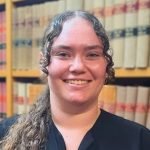Is it legal for someone to take photos of my child playing sport without my permission in Queensland? Surprisingly to many parents, the answer is yes—in most cases, it is not illegal.
In Queensland, there are no general privacy laws that prohibit someone from photographing others, including children in public spaces. This means that anyone can legally take photos or videos of children in public areas, such as parks or sports fields, without needing parental consent.
What about private property?
If the sports event is held on private property, the rules change. Property owners and managers can restrict or prohibit photography on their premises. However, if someone is standing on public land and taking photos of children on private property, this is generally not considered illegal as long as the person is not trespassing.
So, when is it illegal to photograph children?
There are specific circumstances under Queensland law where taking photos of children is unlawful, these are:-
- Indecent or Inappropriate Material
Under the Criminal Code 1899 (Qld), it is a criminal offence to take or possess images of children that involve:-
- sexual content or nudity;
- suggestive or explicit material; or
- images taken in private spaces where a child would reasonably expect privacy, such as change rooms or bathrooms.
These laws apply regardless of consent from the child or parent.
- Use of Personal Information
While private individuals generally aren’t bound by privacy laws when posting personal content, businesses and organisations are subject to the Privacy Act 1988 (Cth). This means it may be illegal to publish a child’s identifiable image without parental consent if the photo:-
- shows the child in a school uniform;
- reveals the child’s full name; or
- clearly identifies their school or house.
- Offensive or Threatening Behaviour
The Summary Offences Act 2005 (Qld) makes it an offence to engage in photography that is threatening, harassing, or offensive, and is likely to interfere with someone’s ability to enjoy a public place. This might apply where someone is aggressively filming children or making others feel unsafe or uncomfortable. However, someone quietly or discreetly taking photos from a distance in a public area is unlikely to breach this law.
Can sporting clubs or associations ban photography?
Yes, they can.
Many sports clubs and associations operate on land leased from Councils, which can be considered private property. If a club has control over access to its grounds or events, it can set conditions for entry, including bans or restrictions on photography and filming.
Sporting organisations are increasingly introducing child-safe photography policies to:-
- protect children’s privacy and identity;
- prevent unauthorised image sharing; and
- provide peace of mind to families.
These policies can outline:-
- who is permitted to take photos;
- when and where photos can be taken; and
- how images can be used or shared.
What can parents do to protect their children?
You can:-
- Ask your local club if it has a photography policy in place. If not, consider encouraging them to create one.
- Be cautious when sharing photos online, ask yourself:-
- Who can see the image?
- Does it include other children whose parents may not have consented?
- Could the image reveal personal details of the children?
Also consider adjusting your privacy settings on social media to limit who can view your posts.
While it’s unsettling to see someone photographing your child without permission, the law in Queensland generally permits it in public spaces unless the photo is indecent, offensive, or taken on private property without consent.
However, sporting associations and clubs are empowered to take an active role in protecting children through appropriate photography policies. If you’re unsure about a club’s rules, ask questions and advocate for policies that prioritise the safety and privacy of young athletes.









